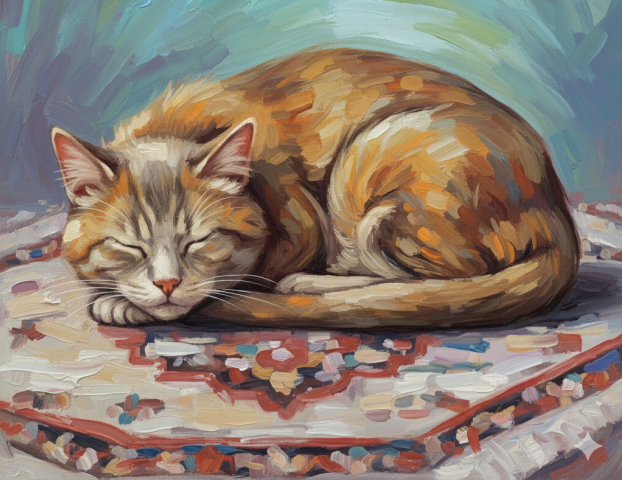Incredible to think how much has changed for our cats over the years. In the 1980s, the average cat lived to be around 7 years old. Today, thanks to advancements in veterinary care and a better understanding of their needs, many cats live to be 12 to 18 years old—with some even reaching their early twenties.
That’s almost double the lifespan, and the good news is that you have a big role to play in helping your feline friend live a long, happy, and healthy life. This blog will explore proven strategies and helpful tips to help your cat reach its maximum life-span.
Keep Your Cat Indoors
This is one of the most important factors in increasing a cat’s lifespan. Indoor cats are protected from a myriad of dangers, including car accidents, attacks from other animals (like dogs, coyotes, and other cats), infectious diseases, and exposure to poisons and toxins.Did you know? The average lifespan of an indoor cat is typically 12-18 years, while outdoor cats often only live about half as long.
Provide a High-Quality, Non-Raw(Cooked), Moisture-Rich Diet.
A balanced diet is essential. Wet food is often recommended over dry kibble due to canned food’s extra moisture, which supports kidney and urinary tract health. .
Did you know? Although there are many claims about the benefits of feeding raw food to pets, science has repeatedly shown the increased risk of infectious disease to not only the pets eating these diets, but also the people preparing raw meals.
Maintain a Healthy Weight
Obesity is a major health risk for cats. Canned cat foods, which generally have higher protein, fat and lower carbohydrate content than dry kibble, generally fit better with a cat’s carnivorous evolution and reduce the risk of obesity. Monitor your cat’s weight and body condition. Consider purchasing a baby scale and weighing your cat every couple of months. If they are overweight, work with your vet to create a plan that includes a proper diet and increased exercise.
Ensure Regular Veterinary Checkups
Cats are masters at hiding illness and pain. Regular vet visits, at least once a year for healthy adults and twice a year for seniors, can help catch health issues early when they are most treatable. This typically includes routine blood tests, vaccinations and parasite prevention, which includes heartworm prevention for all cats.
Did you know? According to the American Veterinary Medical Association (AVMA), dogs visit their vets twice as often as cats? At Savannah Veterinary Internal Medicine, 75% of our annual appointments are for dogs and only 25% are for cats. Come on, your furry feline family members are counting on you, don’t let them down!
Spay or Neuter Your Cat
This not only helps control the pet population but also has significant health benefits. Spaying or neutering reduces the risk of certain reproductive cancers, and can prevent behaviors that lead to injury, like roaming and fighting.
Did you know? Overweight cats are at increased risk of diabetes mellitus which can significantly shorten their life-expectancy.
Encourage Exercise and Mental Stimulation
Cats need both physical and mental activity to stay healthy and happy. Provide interactive toys, food puzzles, climbing structures, and cat trees. Engage in daily playtime (dust off that laser pointer!) with your cat to satisfy their natural hunting instincts and keep them active.
Keep an Eye on Their Dental Health
Dental disease is common in cats and, if left untreated, can lead to infections that affect the heart, kidneys, and liver. At your cat’s annual check ups, your vet will evaluate the health of the teeth, and recommend professional dental cleanings when needed.
Provide a Clean and Enriched Environment Full of TLC
A clean litter box is crucial. Cats are fastidious, and a dirty litter box can lead to them holding their waste, which can cause urinary tract issues. Provide enough litter boxes (one per cat plus one extra is a good rule of thumb) and keep them in a quiet, accessible location. Also, give your cat vertical spaces like perches and shelves to feel safe and secure. Don’t skimp on the TLC! Just because cats are solitary creatures that doesn’t mean they don’t like the occasional kiss or scratch!
Did you know? There are proven strategies on how to keep your indoor cat happy and fulfilled? Check out the Indoor Pet Initiative on the OSU website.
Minimize Stress
Stress can have a huge impact on a cat’s health. Provide a consistent routine, quiet spaces for your cat to retreat, and calming aids like pheromone diffusers if needed. Watch for behavioral changes, as they can be a subtle sign of stress or an underlying health issue.
Did you know? If your cat is exhibiting urinary symptoms, these are often caused by stressors in the environment.
Pay Close Attention to Changes in Behavior
Since cats hide signs of illness so well, a change in behavior—such as hiding, increased or decreased appetite or thirst, changes in litter box habits, or a drop in energy—can be the first sign that something is wrong. Trust your instincts and contact your vet if you notice anything out of the ordinary.
Did you know? In a longevity study in the UK, of purebred cats Birman and Burmese breeds are reported to have some of the longest life-expectancies, whereas Sphynx and Maine Coon are reported to have a shorter lifespan.
We All Agree: Nine Lives is Never Enough
While we can’t promise immortality, we can give you the tools to help your feline friend live a life so long and happy, it’ll feel like they’ve got all nine lives (and then some!). Just remember, no matter the breed or their age when you find your forever-feline-friend, you have the ability to tips the scales of immortality in your cat’s favor.
For more tips and tricks to keep your cat purring for years to come, be sure to ask the internal medicine experts at Savannah Veterinary Internal Medicine. We’re here to help you give your furry family member the best life ever!

Author:
James Woods DVM, MS, DACVIM (SAIM)
Ph: (912) 721-6410
Contact Us
